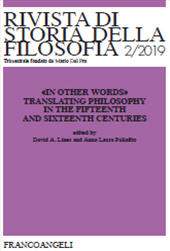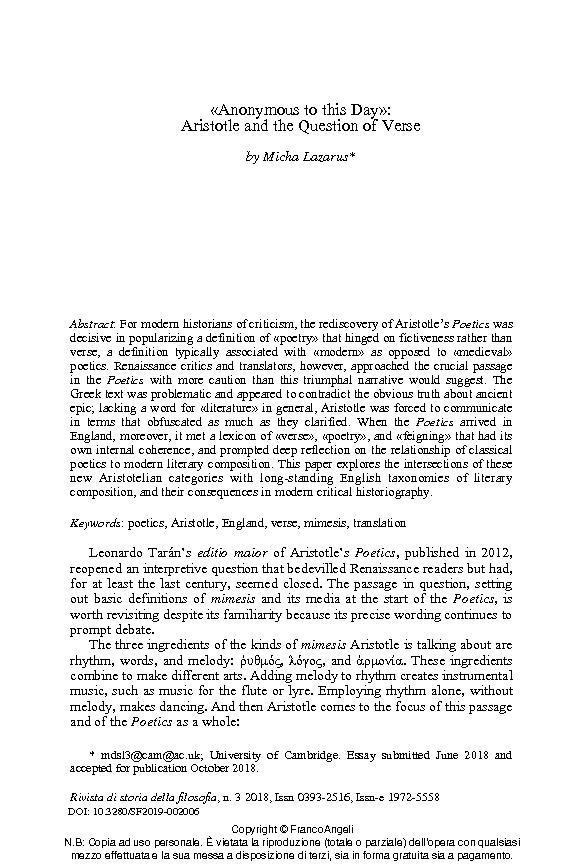Anonymous to this Day : Aristotle and the Question of Verse
267-285 p.
For modern historians of criticism, the rediscovery of Aristotle's Poetics was decisive in popularizing a definition of «poetry» that hinged on fictiveness rather than verse, a definition typically associated with «modern» as opposed to «medieval» poetics. Renaissance critics and translators, however, approached the crucial passage in the Poetics with more caution than this triumphal narrative would suggest. The Greek text was problematic and appeared to contradict the obvious truth about ancient epic;; lacking a word for «literature» in general, Aristotle was forced to communicate in terms that obfuscated as much as they clarified. When the Poetics arrived in England, moreover, it met a lexicon of «verse», «poetry», and «feigning» that had its own internal coherence, and prompted deep reflection on the relationship of classical poetics to modern literary composition.
This paper explores the intersections of these new Aristotelian categories with long-standing English taxonomies of literary composition, and their consequences in modern critical historiography. [Publisher's text]
Fait partie de
Rivista di storia della filosofia : LXXIV, 2, 2019-
Articles du même numéro (disponibles individuellement)
-
Informations
Code DOI : 10.3280/SF2019-002006
ISSN: 1972-5558



